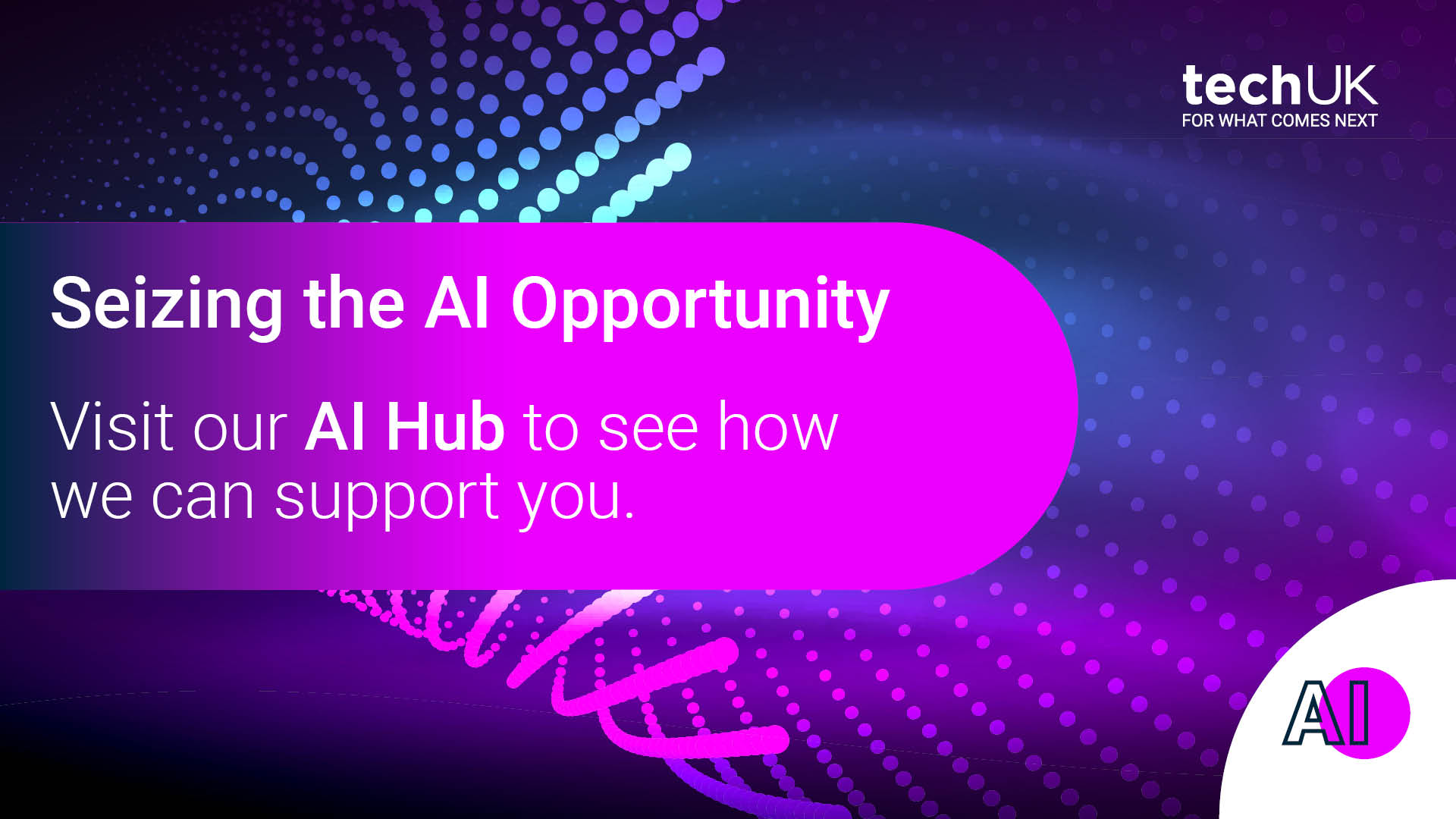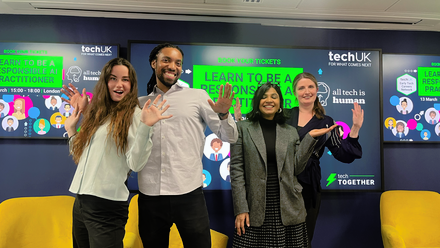How CESIUM is driving AI adoption, safety, innovation and inclusivity (guest blog by Trilateral Research)
What is CESIUM?
CESIUM is Trilateral Research’s groundbreaking child safeguarding AI solution. Conceived in 2018 as a response to ongoing data sharing issues identified by the UK government on inter-agency working to safeguard children from exploitation, along with subjective and reactive risk identification practices, Trilateral’s background in data protection, cybersecurity and emerging tech, along with their subject matter expertise, put them in a unique position to drive the development of an ethical AI solution to transform efforts to safeguard children from exploitation.
Benefits of using CESIUM include:
- Optimised software
- Secure access to multi-agency data
- A single source of truth for each child
- Comprehensive local area insights
- Enhanced processes
- Increased objectivity
- Streamlined referrals
- Targeted interventions
- Improved outcomes
- 80% reduction in pre-screening time
- 400% capacity uplift
- 34% earlier safeguarding referral
Awareness of CESIUM continues to gather pace. Over the past year, experts at Trilateral have been invited to present on CESIUM and the innovative work of the Trilateral team. Audiences have included the UK’s National Police Chiefs’ Council (NPCC), Interpol’s Specialist Group on Crimes Against Children (SGCAC), and on 21-23 May 2024, Abu Dhabi’s International Exhibition for National Security and Resilience (ISNR). The Trilateral team also continues to receive recognition for CESIUM, with a 2023 DataIQ award win, and shortlisting for two National Technology Awards (announcing 23 May 2024).
CESIUM: Driving adoption of AI
Since its inception, experts at Trilateral have recognised that for CESIUM to be fully utilised by the child safeguarding community, it had to address the challenges that prevent the adoption of responsible AI. To navigate these challenges, Trilateral developed sociotech methods, taking both technical and social factors into consideration throughout the development, implementation and ongoing use of AI.
|
The challenge |
How sociotech addresses this challenge |
|
Resourcing issues Limited operational capacity, limited digital skills, resistance to change |
Expert, interdisciplinary and domain knowledge supplements internal capacity and skillsets, and a co-design approach supports real, cultural change. |
|
Legacy issues Poor software, incomplete data sets, siloed data |
Software engineers and data scientists work with current systems and data to unpick the issues and provide holistic, user-friendly solutions. |
|
AI concerns Algorithmic and data bias, generic algorithms, ethical concerns |
Ethicists are an integral part of the AI development journey, ensuring data and associated algorithms are as transparent, explainable, fair and trustworthy as possible. |
|
Reporting issues Lack of context for insights, reporting complexity |
Subject matter experts leverage a research-driven approach to support throughout development, implementation and ‘Business As Usual’ making sure insights fully address the problem at hand. |
|
Governance issues Dynamic regulatory environments, data protection and data sharing concerns |
Legal advisors, data protection, responsible AI and cybersecurity specialists provide the expert knowledge to ensure data and insights are ethical, secure and compliant. |
Ensuring safety in AI
The safety of CESIUM, it’s data management and its outputs are critical for its success. The team at Trilateral implement an ethics-by-design framework that operationalises UKGOV’s five principles for responsible AI and ensures that safety is a key consideration throughout development and deployment.
- Safety, security and robustness
- Secure cloud hosting
- Comprehensive data security
- Ethical AI risk assessments
- Appropriate transparency and explainability
- UK Algorithmic Transparency Standard adoption
- Robust processes and documentation
- Co-design process
- Fairness
- Bias mitigation strategies
- Transparency insights dashboard
- Bias mitigation user training
- Accountability and governance
- Ethics-by-design framework
- Continuous improvement processes
- Contestability and redress mechanisms
- Shared responsibility
- Clear identification of roles and responsibilities
- Client / supplier compliance
- Annual validation and training
The data ethics methods used to develop CESIUM have been published in the Centre for Data Ethics and Innovation’s Portfolio of AI Assurance Techniques, and OECD’s Catalogue of Tools and Metrics for Trustworthy AI.
Fostering innovation with AI
By instilling responsible principles in AI from the start – whether transparency, non-malfeasance or explainability – innovation in responsible AI development becomes a standard outcome.
Scaling with confidence
- A robust approach to deployment ensures efficiency and bias mitigation.
- Principle-driven ML models present less challenges and are less time-consuming.
- Alignment to principles and values ensures accurate, streamlined testing.
Innovating continuously
- AI evolution requires a continual drive for investment and adaptation.
- Ongoing, ethical AI utilisation and readiness for future advancements.
- AI becomes a co-pilot for innovation and sustainable growth.
Future-proofing innovation
- Ongoing assurance that challenges the notion of a one-time bias removal.
- Readiness for emerging regulations, such as the AI Act, beyond mere compliance.
- Prioritising responsibility over reactive compliance enables competitive advantage.
Embedding inclusivity in AI
CESIUM’s ethics-by-design framework ensures inclusivity throughout development, implementation and ongoing use.
Diverse dataset utilisation | CESIUM leverages a diverse range of features from end user datasets, meticulously curated. By incorporating and accounting for the impact of varied demographics such as race, gender, age, socio-economic background, and geographical locations, our AI models deliver inclusive outcomes.
Bias-mitigated decision making | Through implementation of a unique sociotech bias-mitigation process and continuous monitoring and refinement of its advanced algorithms, CESIUM ensures fairness and equity in every insight it provides.
Community-driven development | CESIUM is a result of extensive collaboration with diverse stakeholders, including domain experts, ethicists and end users.
Transparent decision processes | With CESIUM, transparency is paramount. Clear explanations of how decisions are reached are provided, empowering users to understand and interrogate the factors influencing AI-driven outcomes. Trilateral is an early, voluntary adopter of the UK Algorithmic Transparency Recording Standard.
Accessible and User-Centric Design | CESIUM prioritises accessibility and usability, ensuring that it caters to the diverse needs and preferences of all users. Its UI/UX features incorporate the UK government’s accessibility requirements for public sector bodies.
techUK - Seizing the AI Opportunity
The UK is a global leader in AI innovation, development and adoption.
AI has the potential to boost UK GDP by £550 billion by 2035, making adoption an urgent economic priority. techUK and our members are committed to working with the Government to turn the AI Opportunities Action Plan into reality. Together we can ensure the UK seizes the opportunities presented by AI technology and continues to be a world leader in AI development.
Get involved: techUK runs a busy calendar of activities including events, reports, and insights to demonstrate some of the most significant AI opportunities for the UK. Our AI Hub is where you will find details of all upcoming activity. We also send a monthly AI newsletter which you can subscribe to here.
Upcoming AI Events
Latest news and insights
Subscribe to our AI newsletter
AI and Data Analytics updates
Sign-up to our monthly newsletter to get the latest updates and opportunities from our AI and Data Analytics Programme straight to your inbox.
Contact the team
Visit our AI Hub - the home of all our AI content:

Enquire about membership:














